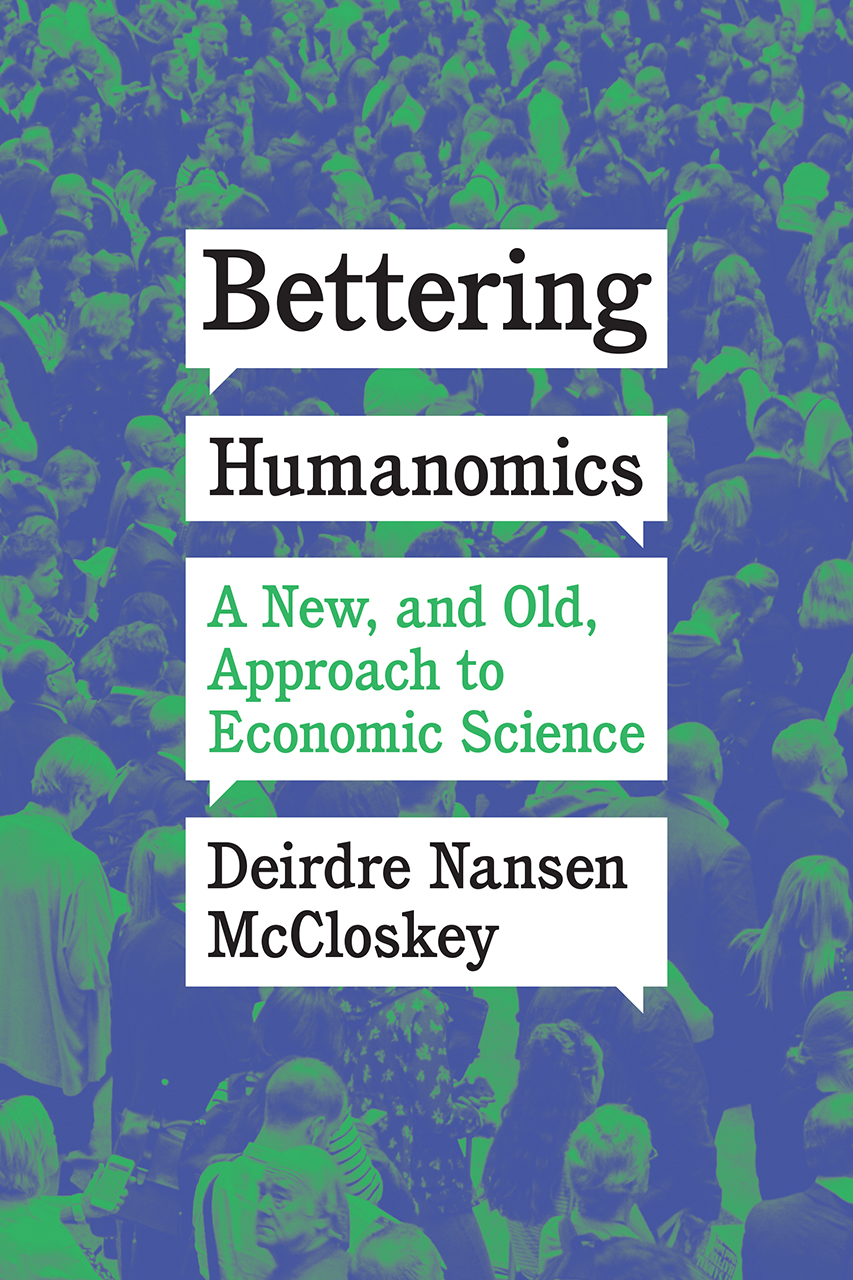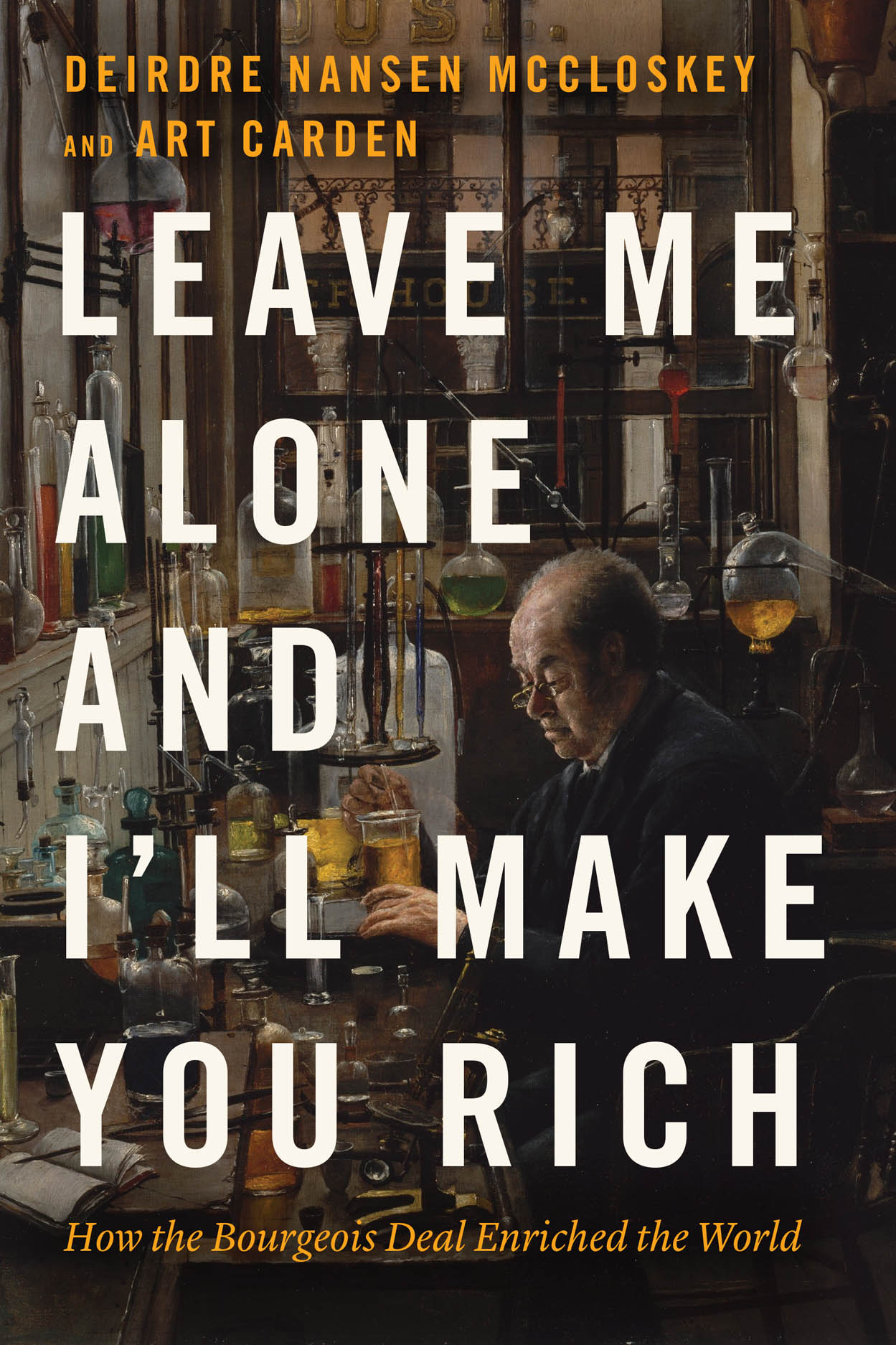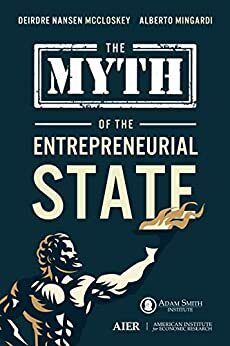Beyond Positivism, Behaviorism, and Neoinstitutionalism in Economics
Índex del darrer llibre de Deirdre McCloskey on deixa ben retratats molts economistes:
Introduction The Argument in Brief
Part I. Economics Is in Scientific Trouble
Chapter 1. An Antique, Unethical, and Badly Measured Behaviorism Doesn’t Yield Good Economic Science or Good Politics
Chapter 2. Economics Needs to Get Serious about Measuring the Economy
Chapter 3. The Number of Unmeasured “Imperfections” Is Embarrassingly Long
Chapter 4. Historical Economics Can Measure Them, Showing Them to Be Small
Chapter 5. The Worst of Orthodox Positivism Lacks Ethics and Measurement
Part II. Neoinstitutionalism Shares in the Troubles
Chapter 6. Even the Best of Neoinstitutionalism Lacks Measurement
Chapter 7. And “Culture,” or Mistaken History, Will Not Repair It
Chapter 8. That Is, Neoinstitutionalism, Like the Rest of Behavioral Positivism, Fails as History and as Economics
Chapter 9. As It Fails in Logic and in Philosophy
Chapter 10. Neoinstitutionalism, in Short, Is Not a Scientific Success
Part III. Humanomics Can Save the Science
Chapter 11. But It’s Been Hard for Positivists to Understand Humanomics
Chapter 12. Yet We Can Get a Humanomics
Chapter 13. And Although We Can’t Save Private Max U
Chapter 14. We Can Save an Ethical Humanomics
Acknowledgments
Llibre resumit amb IA
El llibre "Beyond Positivism, Behaviorism, and Neoinstitutionalism in Economics" de Deirdre Nansen McCloskey proposa una nova aproximació a la ciència econòmica anomenada "humanomics", que complementa les metodologies existents amb una consideració seriosa de la parla humana, la retòrica, les idees i el significat en l'economia. L'autora argumenta que per obtenir una ciència econòmica adequada, es necessita una teorització més àmplia i rigorosa i un empirisme més seriós que l'actual.
Crítica de les metodologies existents:
- Economia Samuelsoniana i Positivisme: McCloskey critica la metodologia dominant en economia, que va prendre la seva forma final en la constitució de l'economia Samuelsoniana de Tjalling Koopmans el 1957. Aquesta metodologia recomanava una especialització teoricopráctica, amb teòrics aïllats de l'empirisme per "protegir" ambdues àrees. L'autora també critica el positivisme lògic, que ha influït en els economistes i que tendeix a ignorar les qüestions de significat i retòrica.
- Conductisme (Behaviorisme): El llibre va més enllà de la forma de la ciència econòmica per centrar-se en l'objecte substantiu, argumentant que l'economia mateixa té una retòrica i que necessita teories de la ment humana que vagin més enllà del simple conductisme. Critica la visió de l'humà com a "Mr. Max U," un sociòpata narcisista que maximitza la seva utilitat, subjecte només a les regles del joc.
- Neoinstitucionalisme: McCloskey també critica el neoinstitucionalisme per utilitzar les eines de l'economia "neoclàssica" i per la seva visió reduccionista del comportament humà i el seu tractament de les institucions com a simples "regles del joc". Argumenta que el neoinstitucionalisme sovint no aconsegueix mesurar l'impacte de les institucions i negligeix el paper de les idees i el llenguatge en el canvi econòmic. Segons McCloskey, les "regles del joc" estan constantment en discussió i influïdes per la conversa humana.
Proposta de "Humanomics":
- Integració de les Humanitats: "Humanomics" proposa una ciència econòmica que integri la immensa informació sobre l'acció humana que es pot obtenir de les humanitats, incloent la literatura, la filosofia, la història, la retòrica i la lingüística. Argumenta que les humanitats són necessàries per a una ciència descriptiva, ajudant a definir categories econòmiques importants i a comprendre el significat de l'acció humana.
- Importància del Llenguatge i la Retòrica: El llibre subratlla que el llenguatge importa i que els canvis en el llenguatge de l'economia són rellevants per al funcionament dels mercats i la innovació. Argumenta que una part significativa de la renda salarial prové de la "sweet talk" (persuasió) burgesa i femenina.
- Ètica i Idees: McCloskey sosté que el Gran Enriquiment des de 1800 va sorgir de l'ètica i la retòrica, específicament de la dignitat del liberalisme i la llibertat econòmica, més que de l'acumulació de capital o l'explotació. Les idees, no només els incentius, són la base d'aquest enriquiment.
- Mesurament Ampli: Una "humanomics" adequada inclou mesurament, però va més enllà de l'econometria oficial, abastant simulacions, gràfics, lectura, mapes, experiments i qüestionaris, i sobretot, escoltant. La comparació internacional es considera una forma important de mesurament en la perspectiva humanista.
Debats i Crítiques:
- Resposta al Neoinstitucionalisme: McCloskey respon a les crítiques del neoinstitucionalisme, argumentant que aquest no té prou en compte el paper autònom de les idees i la retòrica. Critica la noció de les "condicions de llindar" de Douglass North i altres, argumentant que la nova ideologia del liberalisme a l'Europa nord-occidental després de 1776 va ser crucial.
- Intercanvi amb Greif i Mokyr: L'autora discuteix amb Avner Greif i Joel Mokyr sobre el paper de les institucions, la motivació i la importància de les humanitats per a la ciència econòmica. McCloskey argumenta que definir els incentius de manera tan àmplia que incloguin expectatives, creences i normes internalitzades converteix l'economia en una tautologia sense contingut científic específic.
- Diàleg amb Daniel Klein: El llibre també examina l'obra de Daniel Klein, un altre defensor d'una aproximació més humanista a l'economia. McCloskey elogia la seva capacitat de categorització i la seva consideració de les idees i la coordinació en l'economia.
- Ètica i Responsabilitat: "Humanomics" emfatitza la importància de l'ètica i la responsabilitat en l'economia. L'autora destaca com la paraula "responsabilitat" va adquirir la seva prominència moderna en un context comercial als segles XVIII i XIX.
En resum, "Beyond Positivism, Behaviorism, and Neoinstitutionalism in Economics" advoca per una ciència econòmica més rica i completa que integri les perspectives i les eines de les humanitats per comprendre millor la complexitat de l'acció humana i les forces que impulsen l'economia, especialment el paper crucial de les idees, la retòrica i el significat.









